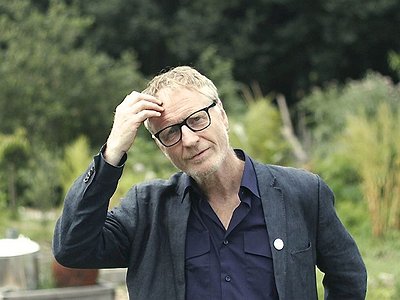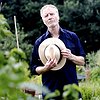Part 3
How is playing live and writing music in the studio connected? What do you achieve and draw from each experience personally? How do you see the relationship between improvisation and composition in this regard?
Can I venture the idea that there may not always be a connection or relationship? In my work, the studio composition happens and at some point the music is represented on stage. At that point I would examine the challenge and arrive at a solution.
That solution will be adapting the composition, perhaps moving elements of complexity to vocal improvisation, or moving from a full-on rhythmic experience to a reflective experience. That recorded composition may have many lives as performed piece, depending on players and circumstance.
There was a time where, as a band, we would strive for perfect replication of recorded sound. Those days are well behind me and if anything, I’m looking to discover something new in the adaptive performance.
How do you see the relationship between the 'sound' aspects of music and the 'composition' aspects? How do you work with sound and timbre to meet certain production ideas and in which way can certain sounds already take on compositional qualities?
So modulating sound is a great opportunity. It can fix a situation. The over familiarity of a chosen instrument can be crushing when you get to record. With modulation, not only can you change the character of that familiar sound but you might push\draw new harmonics out of the instrument.
So for me that’s the immediate win-win situation you can create between a sound, composition exchange.
I am a little old fashioned in that the idea is always paramount. For me the process is
1. Idea
2. Performance / feel
3. Mic / room
4. Mix
So at the top of that list is an idea that has been captured on a phone or scribbled on paper. But through performance and mining you may well feel that crushing over-familiar feeling and at that stage, sound can rescue the whole process. If that works it may very well suggest a departure, which is amazing. But I will rarely pursue an abstract sound in the hope that setting that sounding composition might produce something great.
I have been there and I get bored really quickly and usually start to ask myself questions.
Our sense of hearing shares intriguing connections to other senses. From your experience, what are some of the most inspiring overlaps between different senses - and what do they tell us about the way our senses work? What happens to sound at its outermost borders?
I’m not alone in seeing arrangement as colour, mood as colour, but physical feel can also play a massive part of understanding our relationship with a tune, quite apart from the physical interaction between hands and weighted keyboards, or wide necks on classical instruments or slinky necks on electric instrument.
And then there is the moment of performance. Sometimes, standing and trying to feel the pocket of a rhythm, it’s a full-body experience. There is the mental effort, perhaps visualising the beat, and then there is the accent of a beat that might draw your weight slightly to the right or left. The performance may be affected by the shoes you are wearing or the feel of the floor.
At the mix I am looking for wood sometimes or sunshine another time. We speak about brightening the top end, or complain about a dull low end, or sharpening the sound. We speak of the mix being too heavy. so we need to lighten up, or comment on density, we look for the space. That’s so important. Looking for space in which to drop an idea that shines. We step pack and pan the sound to fill the room, then check the headphones. It’s all language of touch, feel, weight, colour, reflection and … taste. Ha Ha
Art can be a purpose in its own right, but it can also directly feed back into everyday life, take on a social and political role and lead to more engagement. Can you describe your approach to art and being an artist?
OK. Great question. Firstly my background is odd. I left school early and worked in construction and in car factories and food factories amongst other stuff before making any music. I only thought I had a shout in the dimension of idea and art after a long time in the pop business. But I very much unashamedly believe I belong within the world of art. Art, for me, is the expression something beyond words. There maybe words, lyrics, poetry, narrative, but the feeling is beyond words.
With regards to me as a performer, composer, producer, I have very much politicised my work in the sense that it has to benefit the community. That community can be the neighbourhood or the connected world of music makers, or the exchanging platforms where filmmakers, painters or musicians feed back to one another and eventually end up working together. It also takes a moral stand and has an opinion and a role to play in exposing dysfunctionality.
It is remarkable, in a way that we have arrived in the 21st century with the basic concept of music still intact. Do you have a vision of music, an idea of what music could be beyond its current form?
That’s a hard question, which I am going to have to dig deep into.
Current form could mean the ubiquitous streaming culture, which benefits UMG and no one else or it could be the form in which sound as dissonance tonal is the choice, the soundtrack of the 21st century. Perhaps the is that we moving ever closer to the full democratisation of music, where the maker and the listener are equal partners.
I think we are moving towards the dismantling of the star system. Perhaps the notion of icons, idols, those special people we like to feel apart from, will become as redundant as many monarchies or ancient forms of the Latin mass.







